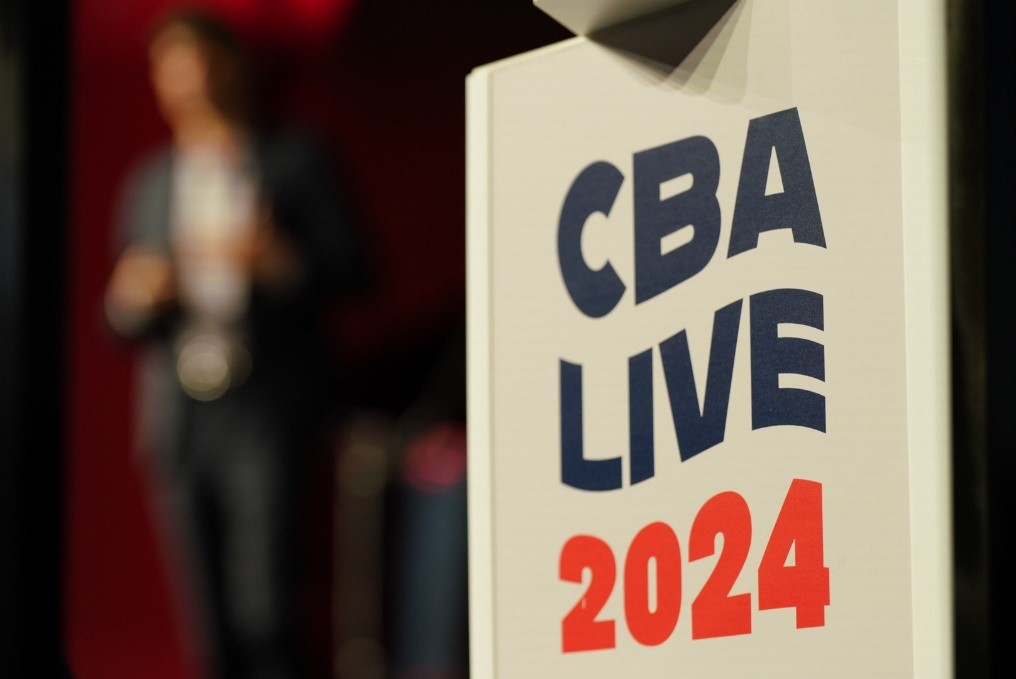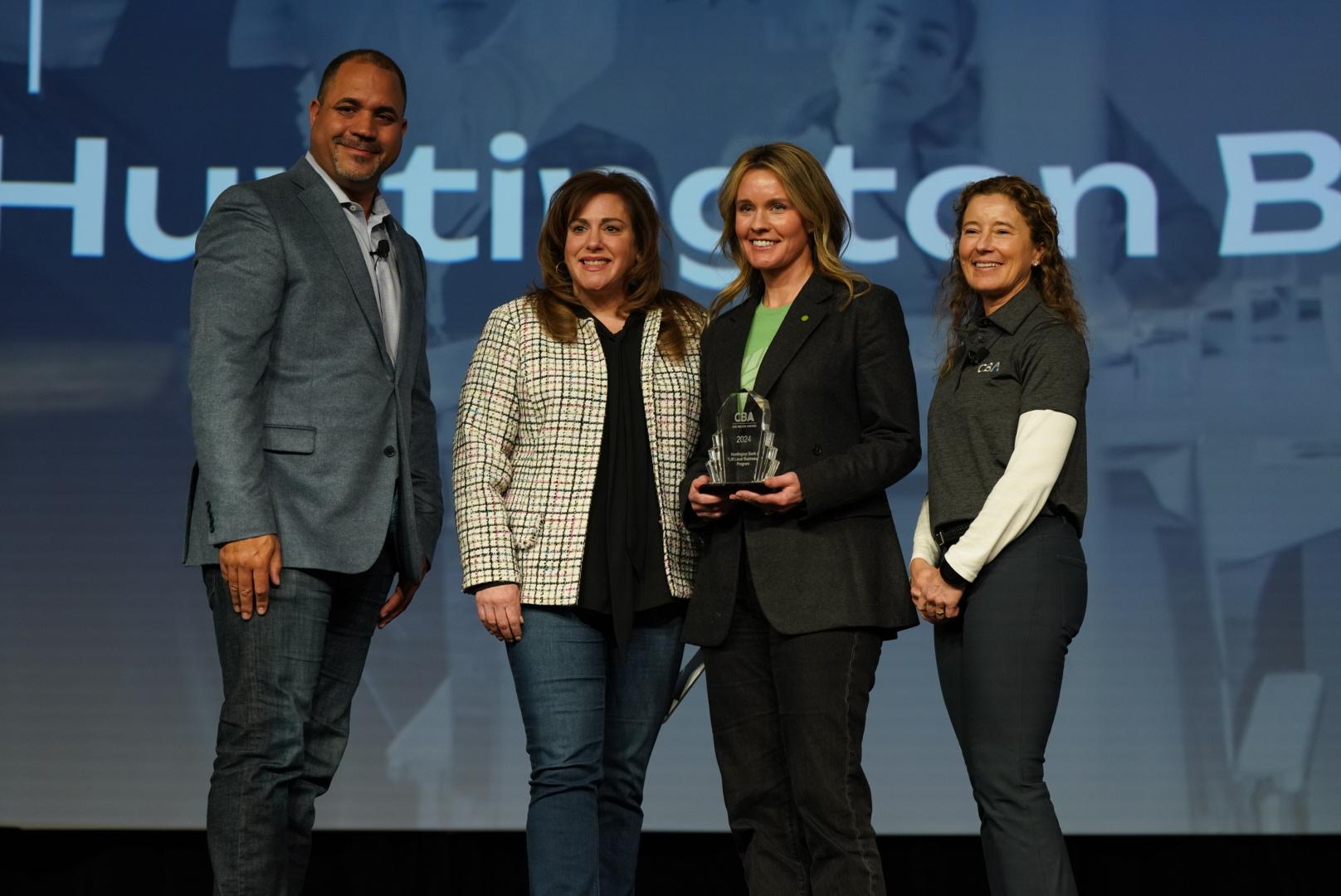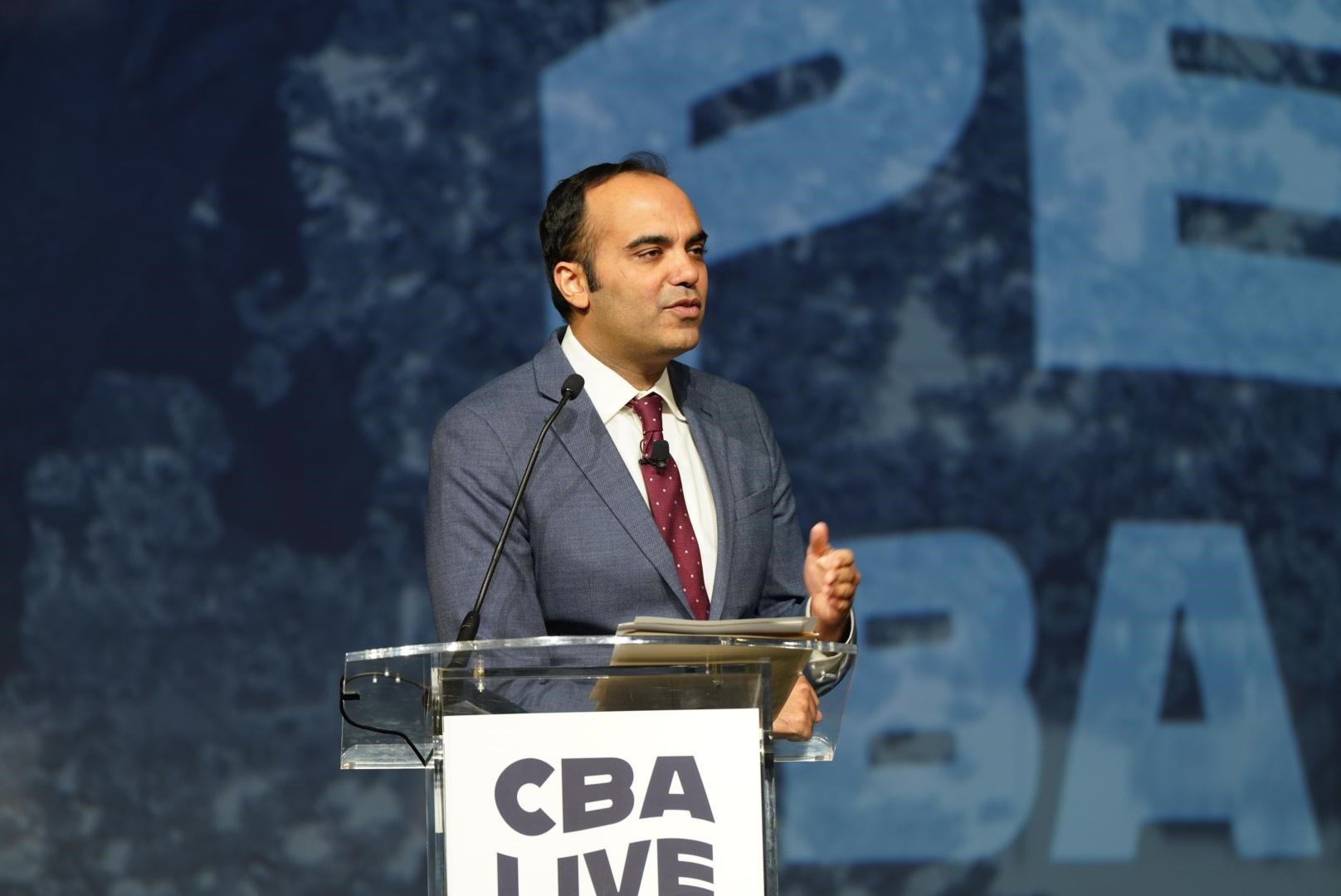At Final Day of CBA LIVE, Bruce Mehlman Provides a Lookahead to 2024 Election and Beyond

WASHINGTON, D.C. – The Consumer Bankers Association (CBA) today concluded retail banking’s premier annual event – CBA LIVE – with remarks from Bruce Mehlman, former Assistant Secretary of Commerce and policy, who provided a roadmap for the future of banking in this rapidly changing environment. Mehlman highlighted concerning trends for the industry given the 2024 election, disruption in tech and the geopolitical order, and general distrust of institutions, saying:
“Whether it's Q4 or Q1, expect a disruptive environment in which you're doing business […] We're in an environment where people who already are mistrustful of institutions are now being told, you can't believe what you see or hear or read […] We know foreign countries are trying to influence [the election] but they also try to make Americans angrier at each other so they amplify voices of dissent.”
At the same time, Mehlman encouraged attendees to remain bullish and avoid fixation on the current election cycle or any individual trend in the near term, saying:
“The first [recommendation] is to not get caught up on short term trends as macro trends are bigger than election cycles […] Recommendation number two is to think micro. Yes, the big trends are the big trends. But 2025 is going to be an epic year […] The last one is, don't lose hope. Because remember that all of this negative political stuff that we read is driven by the fact that the media is a business.”
Forum Discussions on Bank Fraud Prosecution, The Impact of Cumulative Regulatory Change on Consumers
Outside of the General Session main stage, CBA LIVE programming has also included lively discussions across multiple Forums that focused on key issues and trends affecting the banking industry today.
Bank fraud teams often have interest in the full legal prosecution of certain fraud cases but have difficulty getting interest from law enforcement or getting subpoenas that fit the data needed for the case. During the Bank Fraud Prosecution Forum, experts from the FBI and state law enforcement shared how banks can approach and coordinate with law enforcement and prosecutors to help get a case to court.
When asked how banks can best collaborate with law enforcement to ensure prosecution of fraudsters, Joseph Harvey, Principal Relief Supervisor at the FBI, gave a concise response, emphasizing the need for direct communication between banks and law enforcement, saying:
“The best thing to do, as far as I'm concerned, is pick up the phone and call […] If I can have a conversation right at the beginning with whoever is going to be charged with compiling information, I'm happy to tell you about my case. I'm happy to tell you what we're looking at, and this is why we're looking for it.”
Bryan Porter, a Commonwealth's Attorney with the City of Alexandria, Va., agreed, emphasizing the efficiencies better communication can create, saying:
“If an anonymous prosecutor is emailing an anonymous portal at a bank, we may be asking for stuff that we shouldn't be asking for. We may be asking the institution to put together way too much information. I've never intentionally tried to make a bank investigator's job difficult or ask for things that are erroneous or extraneous that we don't really need. So, if we can have that conversation, and it might be us picking up a phone and calling the investigator, that could go a long way to making things better for both of us.”
A separate discussion focused on regulatory changes that may significantly impact the economics of banking and consumers. Legal and regulatory experts from law firms and the Financial Heath Network explored recent regulatory developments and their impact on access to banking, costs, and services provided, specifically regarding the CFPB’s misguided overdraft proposal.
CBA has warned that short-sighted politically motivated policies like the CFPB’s overdraft proposal would likely have the unintended consequence of harming the very people the Bureau intends to help. Andrea Mitchell, Managing Partner, Mitchell Sandler PLLC, raised the same concerns, saying:
“There is a place in our economy where overdraft has a place. So, sometimes that knee jerk reaction of ‘this is bad, let's get rid of it’ ultimately harms the very people you're trying to help.”
Gary Stein, Head of Regulatory & Compliance Advisory, 99FinTech LLC, and former CFPB staffer, noted the value of liquidity to those who need it most, as the overwhelming majority of those who overdraft prefer paying the fee to having a payment declined, citing data from the National Pulse Survey:
“When you look at households that frequently overdraft, those who overdraft ten or more times in a year when you ask them, more than 80% of those households say that they would have preferred to have incurred the overdraft fee, rather than having their payment or purchase declined. So this research suggests that those who are frequently overdrafting experience a recurring and urgent need for additional cash to cover their expenses.”
Adeeb Mahmud, Chief Program Officer, Financial Health Network, concurred, urging the Bureau to exercise caution in proceeding with its proposal, saying:
“We want to state that any efforts to rein in overdraft fees, we believe should be done, with caution. Because there can be the unintended consequence of restricting access for this service that is currently provided because there is a segment of the population who find themselves needing this form of liquidity as well and whatever that provides.”
Background
Entering its 15th year, CBA LIVE attracts the top leaders and influencers from across the country who gather to discuss the most pressing issues facing the retail banking industry. With more than 60 hours of dynamic programming and 16 forum sessions tailored to different bank segments, CBA LIVE offers key insights for professionals motivated to learn new trends and share ideas with the most influential decision makers in the business.



